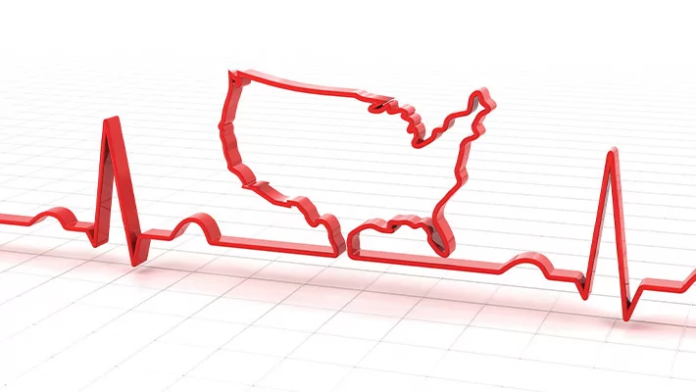When police arrested Luigi Mangione, the Ivy-educated scion of a Baltimore country club empire, for allegedly murdering UnitedHealthcare CEO Brian Thompson, the Senate’s populist standard-bearer did not choose to side with the slain father of two. A man had parlayed his working-class upbringing and public education into the American dream. Rather, Sen. Elizabeth Warren (D-MA) seemed to sympathize with the accused murderer.
Warren championed Mangione as an avatar of those “who feel cheated, ripped off, and threatened by the vile practices of their insurance companies.”
“Violence is never the answer, but people can only be pushed so far,” Warren said in a Huffington Post interview. “This is a warning that if you push people hard enough, they lose faith in the ability of their government to make change, lose faith in the ability of the people who are providing the healthcare to make change, and start to take matters into their own hands.”
Warren soon walked back this tacit admission that the murder of a 50-year-old father in Midtown Manhattan was somehow a moral inevitability.
“Violence is never the answer. Period. I should have been much clearer that there is never a justification for murder,” she said in a statement. But her stinging critique of the U.S. healthcare system was on the record — a view at odds with public opinion.
People adore our healthcare system, even though we don’t know it. And the rest of the world relies on us to foot the bill for medical progress, even if they don’t admit it.
More than seven in 10 people polled by Gallup rate their healthcare quality as either excellent or good, and the majority report satisfaction with the cost. And contrary to Warren and her ilk who believe only the government can provide quality care, the vast majority of private health insurance consumers like their healthcare. According to KFF, 80% of adults with employer-sponsored health insurance consider their insurance excellent or good. Of the patients with employer-sponsored health insurance who have had a problem with their plan in the past year, the majority say such matters were resolved to their satisfaction.
Contrary to Mangione’s claim that “parasites” of UnitedHealthcare “abuse our country for immense profit,” the company posted a net profit margin last quarter of only 6%. That’s half the average profit margin among the rest of the S&P 500 and a fraction of the 30% profit margin enjoyed by the banking industry.
Another Mangione claim, that the most expensive healthcare in the world is responsible for us ranking “roughly #42 in life expectancy,” is easily debunked.
Data analyst Cremieux Recueil has found that compared to the nominally longer lifespans of other rich countries, 90% of the gap for American men and two-thirds of the gap for American women is attributable to exogenous bad behavior, such as our anomalous and abhorrent levels of gun violence, drug abuse, and reckless driving. So, when you estimate life expectancy for the average 65-year-old American who hasn’t actively killed himself with booze and brawls, the CDC ascertains that average life expectancy is near 85 years old. That’s on par with that of the United Kingdom, Germany, and the Netherlands.
Then there are the global benefits of the U.S. health system. The hefty price tag of our health insurance is effectively socialized medical progress for the rest of the world.
Despite comprising just 4% of the world’s population, the U.S. government contributed two-thirds of the $69 billion budgeted by OECD states to health-related research and development. The U.S. pharmaceutical industry spent a staggering 71% of the $129 billion spent by the global private industry on pharmaceutical R&D. The U.S. produces about half of the world’s medical R&D and between two-thirds and three-quarters of the world’s pharmaceutical profits.
As recently as the 1950s, cervical cancer was the second leading cause of cancer deaths among U.S. women. However, researchers at Cornell University developed the Pap test, which discovered HPV, the virus responsible for virtually all cervical cancer cases. By the 1970s, the U.S. government had spent tens of millions of dollars mainstreaming the Pap test across the planet, contributing around 80% of global funding for the now routine screening capable of stopping cervical cancers before they even start.
At the start of the 21st century, U.S. pharmaceutical company Merck invested more than $1 billion in a vaccine to prevent the transmission of the highest-risk variants of HPV entirely. Even with only 60% of U.S. teenagers up-to-date on the HPV vaccine, cases of the highest-risk HPV strains are down 88%, and cervical cancer deaths among young women are down 62% over the last decade. Among all U.S. women, cervical cancer is now only the 14th-leading cause of cancer deaths. Australia, where more than 80% of the country’s teenagers are vaccinated for HPV, is on track to eliminate cervical cancer cases within the decade.
CLICK HERE TO READ MORE FROM THE WASHINGTON EXAMINER
None of this is to say the U.S. healthcare system is perfect. Because most employer-sponsored health insurance plans cannot move with a patient to a new job, insurers may gamble on kicking chronic health problems or likely health consequences down the road for another company to cover.
But the U.S. healthcare system’s broad success shows Warren’s initial seeming justification for Thompson’s murder to be morbidly hollow and empty.
Everyone loves the US health system even if they don’t know it
RELATED ARTICLES



